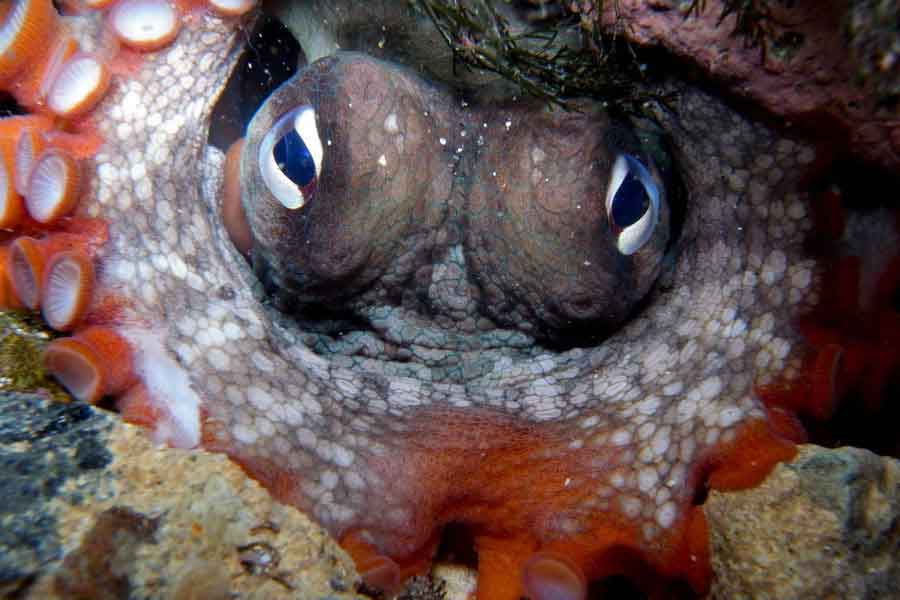
Octopuses usually stay in their caves for most of the day, keeping an eye on the outside and any movements that occur in their territory. The cave provides them with proper protection during the day and allows them to rest before venturing out into the reef to hunt for prey at night.
Coincidentally, the moray eel, their most feared enemy, also goes hunting at the same time. The moray eel has a keen sense of smell that allows it to locate the octopus’s den in the darkness. It is beneficial for the octopus not to be at home during that time. By wandering around the reef and constantly moving, the likelihood of encountering moray eels is reduced compared to being stationary in one place.
The octopus has the strange habit of collecting things from the seafloor and depositing them at the entrance of its cave. Colorful coral fragments, seashells, and above all, anything that shines—bright objects like glass and metal—are the preferred items of this curious collector. Every day, the octopus pays great attention to the cleaning of its collection. The exact reason for why it collects and cleans these objects is unclear, but it might be to attract the attention of potential mates of the opposite sex or to signal its presence to individuals of the same sex in the area.
Octopus hunters are well aware of this behavior. Just by seeing objects at the entrance of a small cave, they know that an octopus is inside. If the objects are partially covered by sand, they know that the octopus has left the cave. However, if they are clean and organized, the octopus is still there. If a diver approaches the cave, the octopus remains unfazed and observes the diver attentively. But if the diver carries a hook used by hunters to capture the octopus, the octopus immediately retreats into the cave, grasping a stone with its powerful suckers to block the entrance.
In recent years, near Porto Belo in southern Brazil, where a large population of octopuses is close to the coast and in constant contact with hunters, we have noticed a behavior that never ceases to amaze us. We often find clean objects in a cave where there are no octopuses, which means that the owner of the precious objects is in a nearby cave, within view of the objects. Apparently, the octopuses in the area have learned to place their collection in an empty but not too distant cave, so they can keep an eye on them and keep them clean and organized.
Undoubtedly, octopuses are highly intelligent animals with great deductive abilities to the point of being able to anticipate human behavior, which sometimes baffles us.
«One cannot defend what one does not love, and one cannot love what one does not know.»

